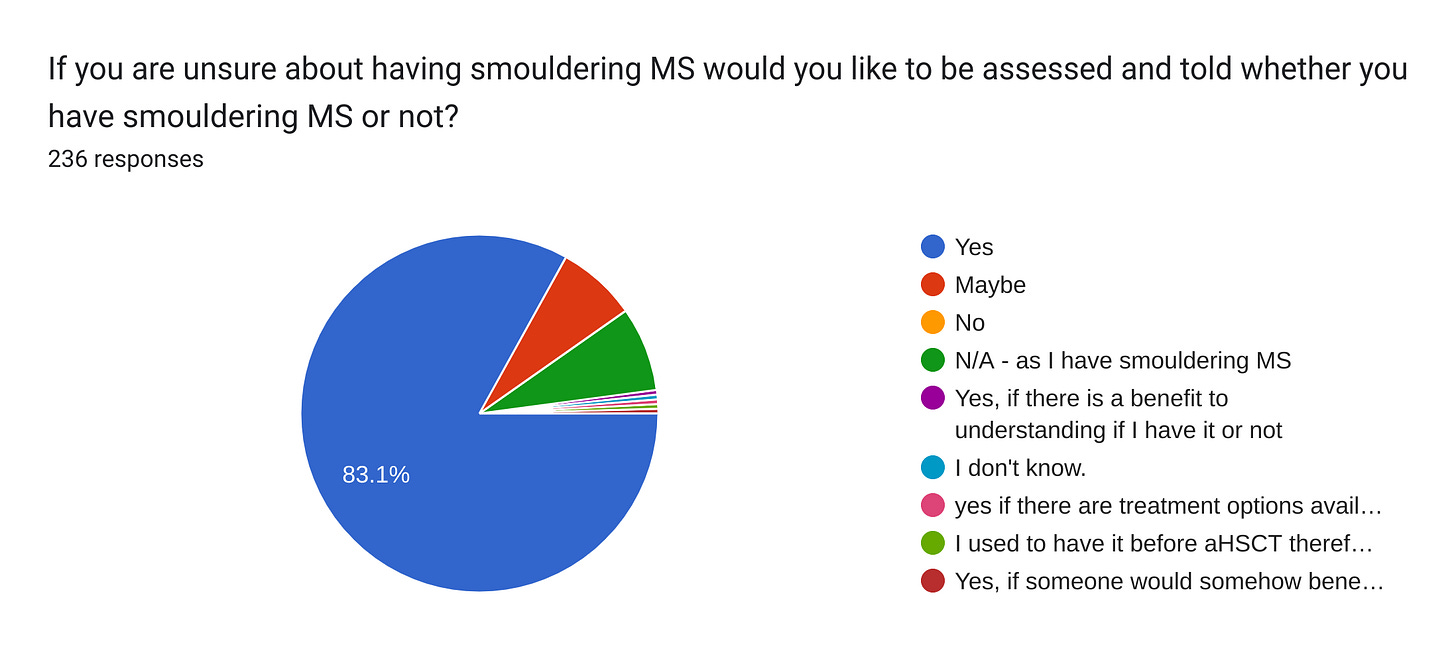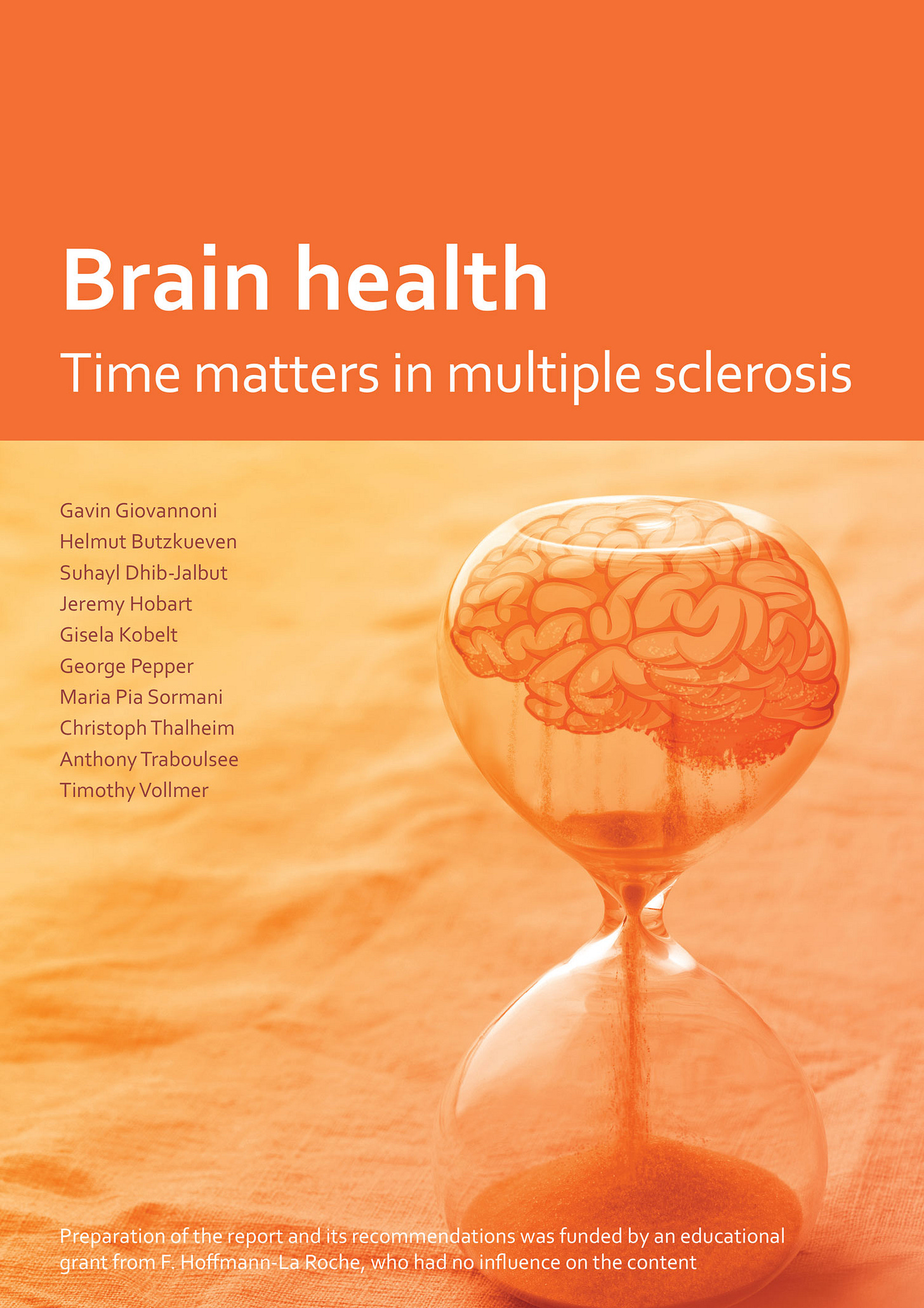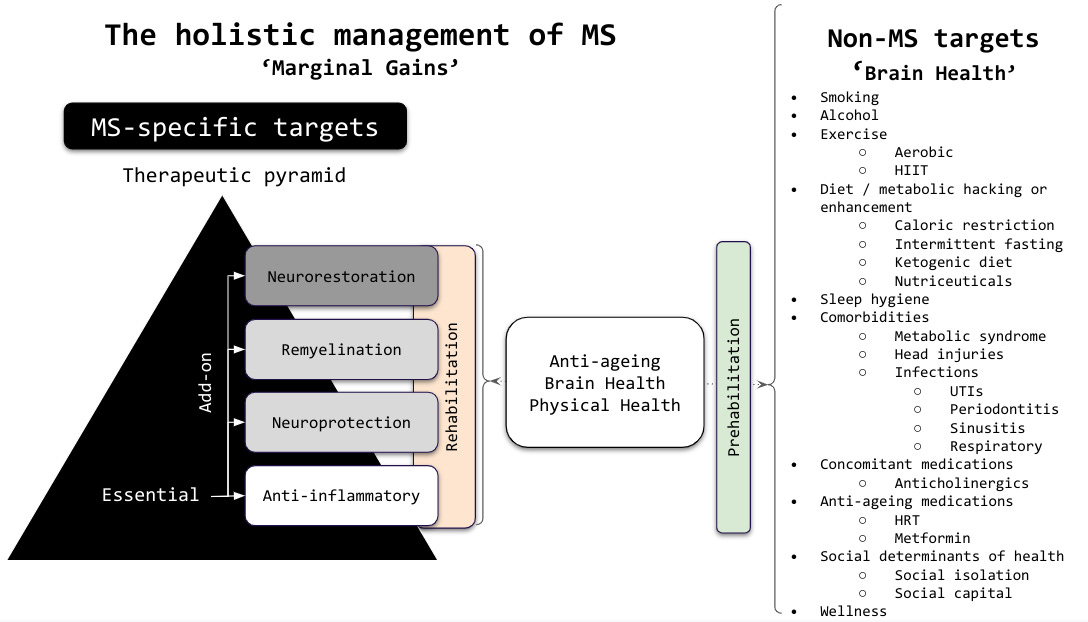Case study
Dear Professor Giovannoni
I am 36 years of age, and I have had multiple sclerosis for just over four years. I started ocrelizumab early; three weeks after being diagnosed. I am told that my disease is in remission. However, I have noticed that I am still fatigued, and my memory and cognition are worsening. I am sure I have a smouldering MS. When I bring this up with my neurologist, he ignores me and is not prepared to accept the concept of smouldering MS. My neurologist refuses to do additional tests to diagnose smouldering MS. Is there anything I can do to stop smouldering MS?
Prof G’s response
Yes, you are right. You may have the smouldering disease, and I would not ignore it. We and others are running trials to try and tackle the smouldering disease, which you may be eligible for. Did you read my recent MS-Selfie Newsletter on “Smouldering MS - a new trial” (16-Feb-2023)? In the newsletter, I discuss some of these trials and mention other things you can do to tackle smouldering MS. The latter is about optimising your brain and metabolic health as part of an approach I call marginal gains to treat MS holistically.
Please read “Brain Health: how important is it?” (6-Oct-2022) for more information on my approach to managing MS.
I suggest you forward your neurologist our paper on smouldering MS (Giovannoni et al. Smouldering multiple sclerosis: the 'real MS'. Ther Adv Neurol Disord. 2022 Jan 25;15:17562864211066751.), which is free to download or you can send him a few MS-Selfie newsletters on the subject of smouldering MS.
His inability to acknowledge your history is a subtle form of medical gaslighting. I would also suggest he reads the MS-Selfie Newsletters on gaslighting.
Smouldering MS survey results
Thank you for helping with the Smouldering MS trial survey. The results have been included in the grant application to the Progressive MS Alliance (PMSA) Challenge Award. The trial proposes to explore the role of the A2A adenosine receptor in smouldering MS.
These headline results show how important smouldering MS is as a treatment target and how well-received MS trials are in this area of great unmet need.
Additional appeal to funders
To address this unmet need, we are very keen to update our ‘MS Brain Health: Time Matters in Multiple Sclerosis’ policy document. The second edition will include three important advances:
Flipping the pyramid: people with MS treated with high-efficacy DMTs will do better than those adopting a maintenance-escalation approach.
Smouldering MS: we need to treat beyond no evident inflammatory disease activity (NEIDA) and target smouldering pathology.
Holistic management: we need to adopt marginal gains as a treatment strategy to optimise MS outcomes.
However, to update the policy document, we hope to get a grant from various institutions, including pharmaceutical companies, to systematically review these core new themes.
Subscriptions and donations
Paid subscriptions to MS-Selfie are being used to administer the Newsletter and associated MS-Selfie microsite currently in development. At the request of several readers, I have now added the option of making a one-off donation. To keep this initiative open to all readers, I would appreciate it if those who can afford a subscription to subscribe. For active paying subscribers, thank you; your contribution is much appreciated. Because of the falloff in paying subscribers, I am considering returning to a paywall that will give paying subscribers six months of unlimited access to all newsletters. At the same time, free subscribers will have to wait to access the newsletters later as an email but on the substack site.
General Disclaimer: Please note that the opinions expressed here are those of Professor Giovannoni and do not necessarily reflect the positions of Barts and The London School of Medicine and Dentistry nor Barts Health NHS Trust. The advice is intended as general and should not be interpreted as personal clinical advice. If you have problems, please tell your own healthcare professional, who will be able to help you.






















Share this post